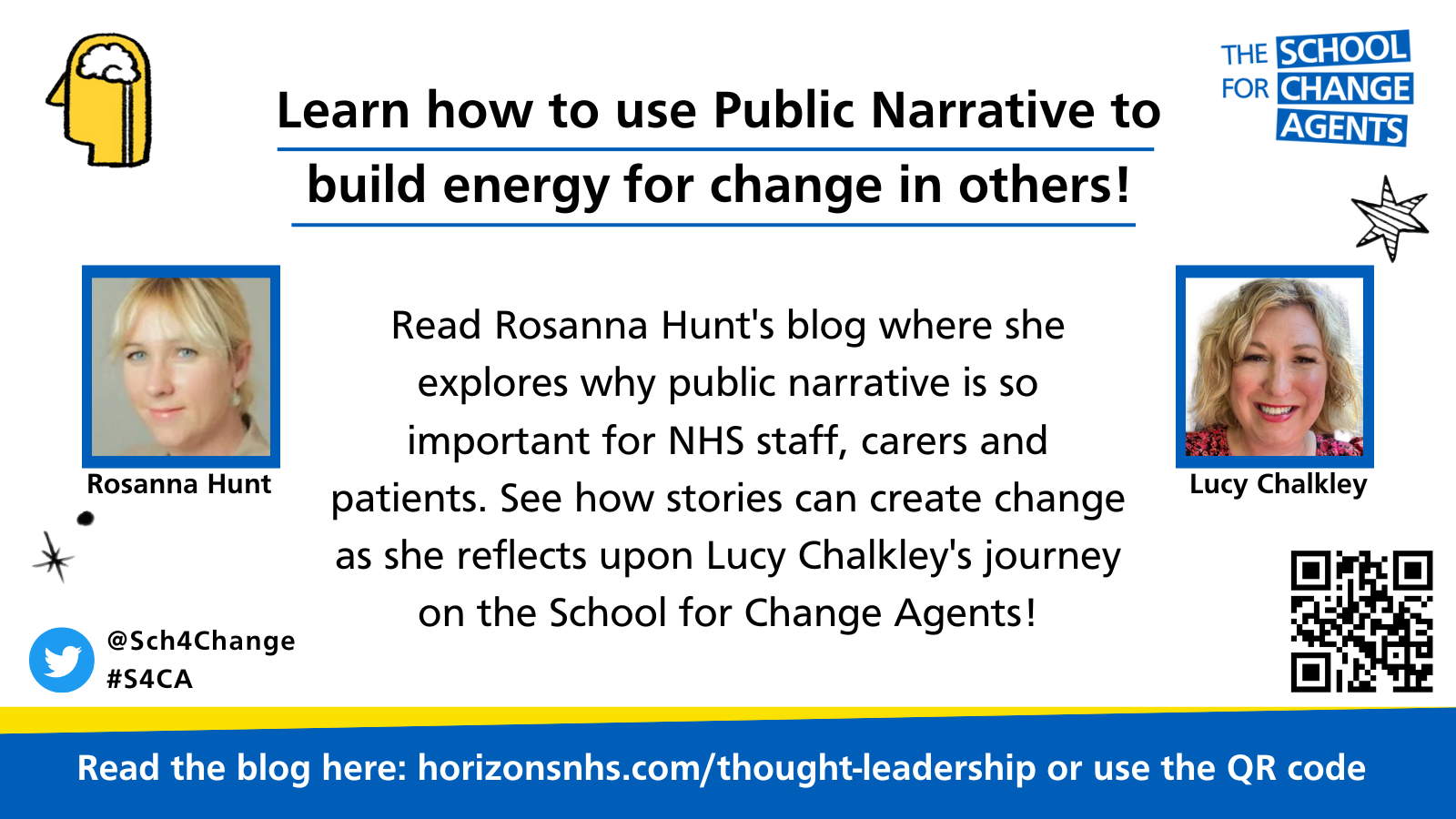How Lucy used Public Narrative to build energy for change in others

Public narrative is a framework for leadership development. It is a technique that is taught on the School for Change Agents by Kathryn Perera who recently co-authored this peer-reviewed journal exploring the evidence for how this approach enhances the effectiveness in leading transformation in maternity services.
In this blog, I want to share with you, what the evidence says about why public narrative is so important in our work as NHS staff, carers and patients. I also want to share a story of impact, from the 2021 School for Change Agent graduate Lucy Chalkley who described to us how this tool has mobilised change in her field of work.
Public narrative enables us to craft a message of change in a way that connects with people’s underlying values and stimulates energy for change in others. Patient leaders have used it to influence future service design and decision-making. Social movements leaders have used it to build a sense of solidarity to effect change (Marshall Ganz provides some examples from history here).
The public narrative is a simple framework for crafting a story. Kathryn Perera and Leigh Kendall described the framework last year in this blog. The framework that public narrative provides, makes your story easy to retrieve and apply, but does take practice, which is why, on the School for Change agents, you get the chance to video-record your early versions of your public narrative for feedback and further refinement.
Lucy Chalkley, who attended the School for Change Agents last year, wanted to use public narrative to mobilise people to reach out and help in their communities, to use their networks and skills and get involved in a voluntary role in their schools.
The change Lucy wanted to see, was more health education in schools and she wanted to mobilise volunteers in the local community to enhance the mental health of primary school children. The impact was assessed at a community event where informal positive feedback was gathered from parents attending. One story of change that has come about as a direct impact is a colleague who has just starting running antibiotic awareness sessions at her school as a volunteer, following her exposure to Lucy’s public narrative.
Public narrative training on the School for Change Agents, coupled with the support of the School community, enabled Lucy to take confident action and develop her skills and capability as a healthcare leader. Lucy used her public narrative with colleagues, in National meetings and in a journal article for the Pharmaceutical Journal How I launched a wellbeing programme for school children – The Pharmaceutical Journal (pharmaceutical-journal.com) The Pharmaceutical Journal, PJ, September 2021, Vol 307, No 7953;307(7953)::DOI:10.1211/PJ.2021.1.101562
Where will you use your public narrative? The School for Change Agents can help you to identify the platform for sharing your public narrative.
Will you join us at the School for Change Agents to craft it and let us know how you get on with applying it?
School starts on 7 November, and is free to join, and to take part in. All you need is an internet connection. The sessions are arranged into ‘bite-sized’ chunks so that you can complete them in your own time, and in your own way. You can take part on a computer, tablet or mobile device.
Sign up now and become part of a global community.
We’d also love for you to continue the conversation with us online using hashtag #S4CA
If you’d like to hear Lucy’s Public Narrative, you can see her video here.

